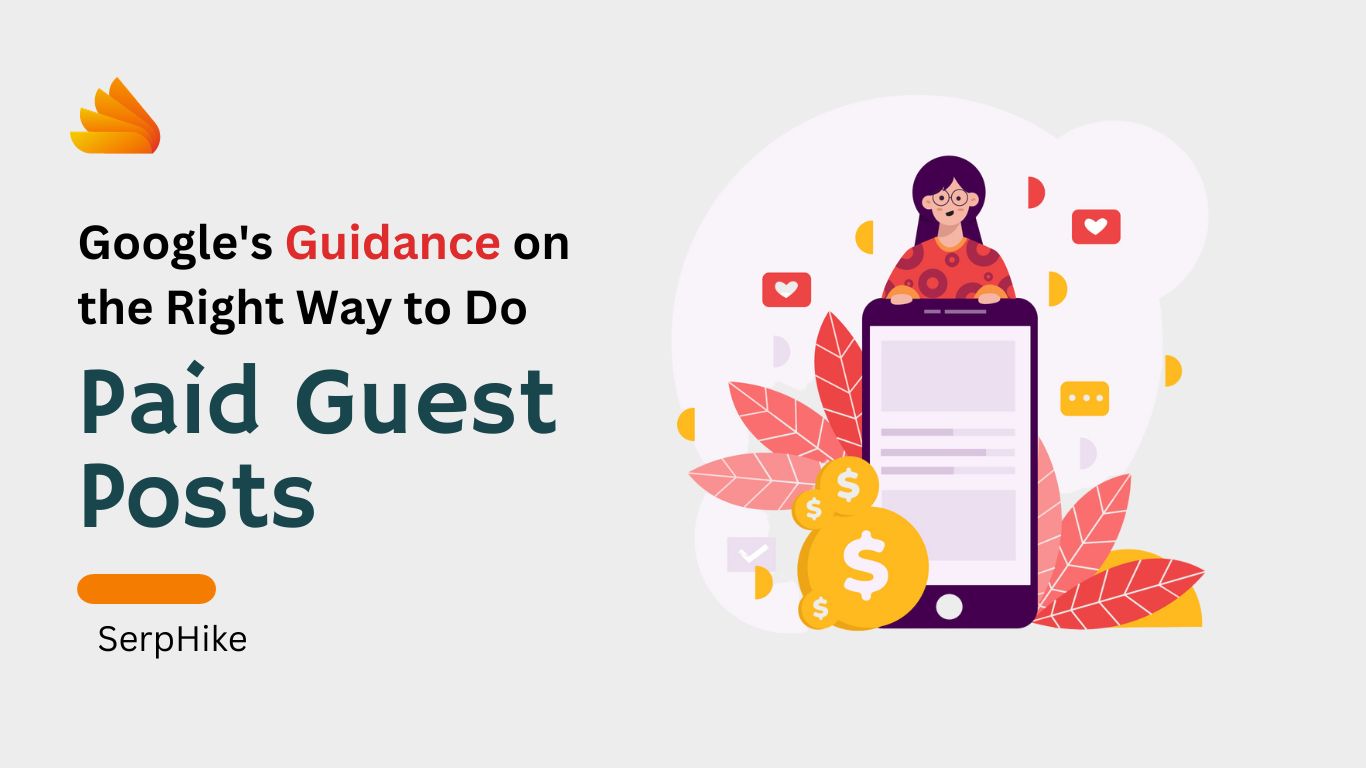Guest posting is a popular practice in the world of online content. It’s a way for website owners to invite guest writers to contribute articles to their site, usually in exchange for exposure and a link back to the author’s website. However, when money exchanges hands for guest posts, it can raise questions about transparency and Google’s guidelines.
In this blog, we’ll delve into Google’s guidance on the right way to do paid guest posts, explaining it in a way that’s understandable for both technical and non-technical readers.
Understanding Paid Guest Posts
Before we dive into Google’s guidelines, let’s clarify what paid guest posts are. They involve a financial transaction between the guest author and the host website. The author pays a fee to have their content published on someone else’s platform. This can be a win-win situation when done correctly, as the author gets exposure, and the host website gets quality content.
Why Does Google Care About Paid Guest Posts?
Google is on a mission to provide its users with the most relevant and high-quality search results. When websites manipulate search results by publishing low-quality or spammy content through paid guest posts, it undermines Google’s efforts. Google wants to ensure that search results are organic and based on merit, not financial transactions.
Google’s Guidelines for Paid Guest Posts
- Use Nofollow Links: One of the most crucial guidelines Google emphasizes is the use of “nofollow” links for paid guest posts. A “nofollow” link tells Google’s search engine not to pass any authority or SEO value from the host site to the author’s site. This helps maintain the integrity of search results.
- Transparency is Key: Google advises both parties—the guest author and the host website—to be transparent about the financial arrangement. This means clearly disclosing that the post is sponsored or paid for. Transparency builds trust with readers and search engines.
- Quality Matters: Google insists that the content in paid guest posts must meet the same high-quality standards as any other content on the website. Low-quality or spammy content can harm both the host site’s reputation and its search engine rankings.
- Relevance is Important: Guest posts should be relevant to the host site’s niche or industry. Irrelevant content can confuse search engines and lead to penalties.
Why Technical SEO Matters
For the more technically inclined readers, it’s worth mentioning that the implementation of “nofollow” links and ensuring that technical aspects like meta tags and header elements are in order can be crucial in complying with Google’s guidelines. These technical details ensure that search engines understand and index your content correctly.
In the world of online content, paid guest posts can be a legitimate and beneficial practice when done right. Google’s guidelines aim to ensure that paid guest posts do not compromise the quality and relevance of search results. By using “nofollow” links, being transparent about paid content, maintaining high quality, and ensuring relevance, both technical and non-technical website owners and authors can navigate this space while staying in Google’s good graces. Following these guidelines benefits not only search engine rankings but also the trust and credibility of your online presence.
